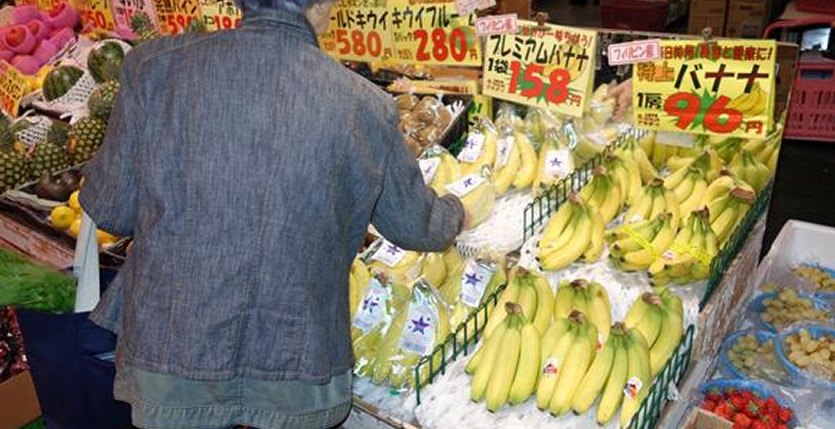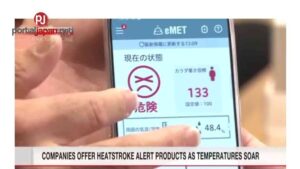Japan’s wholesale banana prices are soaring as drought and disease slash yields in the Philippines, forcing importers to compete with buyers elsewhere for access to less-familiar sources.
The fruit is now selling for 2,850 yen ($26) per 13kg carton on the wholesale produce market in Tokyo’s Ota Ward. Japan in April imported 69,725 tons of bananas from the Philippines at an average price of 112 yen per kilogram — 10% higher than a year earlier. That jump in import prices has spread to wholesale prices as well, raising them nearly 10% over the past week.
The global El Nino weather pattern has brought drought to the southern Philippine island of Mindanao, a center of banana production. “Dry weather began last November, two months earlier than is typical,” a representative for an importer said, predicting output would fall below last season’s levels.
The Philippines’ crop is also suffering from Panama disease, a mold that causes banana trees to wither and ultimately requires orchards to be burnt down. Efforts including sterilization and the introduction of disease-resistant banana varieties are underway. But the situation will take time to improve. In the meantime, “supply is wholly insufficient,” an intermediate wholesaler at the Ota market said.
Source and image: Nikkei

















Join the Conversation